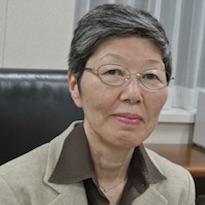GS6 Speakers
Yuko Harayama

Executive Member, Council for Science and Technology Policy, Cabinet Office of Japan, Japan.
Working together for Gendered Innovation (download presentation here ![]() )
)
Plenary Panel 5: Developing Leadership Capacity for Gendered Innovations through Scientific, Technology and Policy Networks
Yuko Harayama rejoined in 2013 the Council for Science and Technology Policy, Cabinet Office of Japan, as an Executive Member. She is the former Deputy Director of the Directorate for Science, Technology and Industry at the Organisation for Economic Co-operation and Development (OECD). She is a Legion D’Honneur recipient (Chevalier), recognized by the President of France for her research on science and technology policy.
Previously, she was Professor in the Management Science and Technology Department at the Graduate School of Engineering of Tohoku University. Dr Harayama holds a PhD in education sciences and a PhD in economics, both from the University of Geneva. Prior to joining Tohoku University, she was a Fellow at the Research Institute of Economy, Trade and Industry in Japan and an Assistant Professor in the Department of Political Economy at the University of Geneva.
Summary of Talk for Gender Summit 6 Asia-Pacific:
Today, recognizing the critical role played by innovation as a driver of economic growth and as a tool to address societal challenges, most governments are competing to become champions to spur innovation by investing in critical science and technology, encouraging entrepreneurial activities, and fuelling their proper innovation ecosystems. Regardless of by whom or where it is initiated, innovation is innovation, something new generating economic and social value. However the process through which it occurs, diffuses, and impacts our everyday life and more generally our society, would be influenced by social practices, norms or perceptions. Here, gender bias may interfere. Generation by generation, effort has been made to unlock the situation, but it is still necessary to accelerate these actions. Good practices should be shared in order to foster mutual leaning and to gain social awareness. Beyond our individual actions, institutional and political engagement would be a powerful driver of change, and existing communities are ready to serve as a platform for this.
